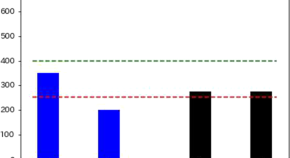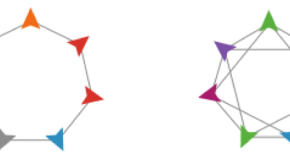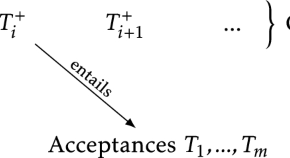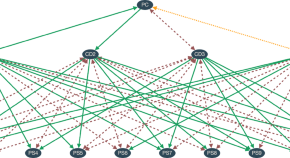Collection
Reflective Equilibrium: Conception, Formalization, Application
- Submission status
- Closed
John Rawls’s A Theory of Justice has been highly influential not only due to its conception of justice, but also due to the systematic way in which Rawls justifies his theory using the method of reflective equilibrium (RE, for short). According to Rawls, the method works roughly as follows: We start with our pre-theoretical moral judgements and try to explain them using a systematic theory. This leads to a process in which judgements and principles are mutually adjusted to each other until a state of equilibrium is reached. For half a century, RE has been very popular, not just in ethics, but also in philosophy more broadly. Philosophers of many persuasions appeal to the method, and some, e.g. David Lewis (1983), go as far as to claim that RE is the method of philosophy. For nearly as long, there have also been critical voices (e.g. Kelly & McGrath 2010, de Maagt 2017).
Given that the method is often mentioned, embraced and attacked, it is surprising, however, that attempts at an in-depth analysis of RE have been scarce. Only few authors have made a sustained effort to develop the method in detail.
The aim of this topical collection thus is to bring together papers that develop RE, analyze it using formal methods or investigate applications of it.
Topics and questions that may be addressed include (but are not limited to):
Conceptions of RE:
– Specifications of RE: How can we spell out more precisely what RE is?
– Details: How exactly should we understand, e.g. considered judgements or the relation of agreement between judgements and principles?
– Process and state: What exactly is the relation between the process of adjusting judgements and principles and the target state of an equilibrium?
– RE’s place in epistemology: What is the relation between RE and more general coherentist and holist accounts in epistemology?
– Relation to debates in philosophy: What can we learn for RE from debates about, e.g. conceptual engineering or theory choice? What do discussions about RE imply for these debates?
– Defence: What are the most promising strategies to defend RE against the objections raised by its critics?
Formalizations of RE:
– Formal approaches: How can methods from, e.g. formal epistemology or belief revision theory contribute to a better understanding of RE? How can RE be modelled using, e.g. logic or probability theory?
Applications of RE:
– Reconstructions of known philosophical debates: Which philosophical debates can be cast as attempts to find an equilibrium? What do such debates imply for the conception of RE?
– Consensus formation and peer disagreement: Under which circumstances does RE likely lead to a consensus? How can RE be used to explain remaining peer disagreement?
– Scope of RE: What role can RE play in various fields of philosophy or inquiry more general? What are the prospects of relying on RE in general epistemology?
– Guiding inquiry: How can RE effectively be used to do philosophical work in specific cases? What guidance can RE provide for deliberations about particular moral issues?
– Consequences: What do insights about RE imply for philosophical debates, e.g. about the epistemology and metaphysics of morality, the structure of justification etc.
Editors
-
Georg Brun
I am a philosopher at the Institute of Philosophy at the University of Berne. My research and teaching is driven by a strong interest in methodology, especially in methods of concept formation, argumentation, justification and rational decision. Philosophical methods, as I understand them, can not only be applied to philosophical questions, but also be put to effective use in many other contexts as means for analysing and reconstructing concepts, claims, debates and decisions.
-
Gregor Betz
Gregor Betz is professor of philosophy of science at the Karlsruhe Institute of Technology. He’s been studying the limits of scientific prediction, esp. in economics and climate science, the role of values in science, requirements of democratic scientific policy advice, and the ethics of climate engineering. He has developed a formal theory and computational models of argumentative debate, and applied these methods to clarify key concepts in epistemology, to interpret classical texts, to assess consensus- and truth-conduciveness of debate, as well as to to improve critical thinking teaching.
-
Claus Beisbart
Professor extraordinarius with focus on philosophy of science Theoretical Philosophy
Articles (10 in this collection)
-
-
Reflective equilibrium in practice and model selection: a methodological proposal from a survey experiment on the theories of distributive justice
Authors (first, second and last of 4)
- Akira Inoue
- Kazumi Shimizu
- Yoshiki Wakamatsu
- Content type: Original Research
- Open Access
- Published: 24 April 2024
- Article: 140

-
The playing field of empirical facts: on the interrelations between moral and empirical beliefs in reflective equilibrium
Authors
- Manuel Cordes
- Content type: Original Research
- Open Access
- Published: 10 April 2024
- Article: 122
-
Precedent and rest stop convergence in reflective equilibrium
Authors
- Bert Baumgaertner
- Charles Lassiter
- Content type: Original Research
- Open Access
- Published: 04 March 2024
- Article: 88

-
Is there a defensible conception of reflective equilibrium?
Authors
- Claus Beisbart
- Georg Brun
- Content type: Original Research
- Open Access
- Published: 22 February 2024
- Article: 79
-
Reflective equilibrium in logic
Authors
- Ben Martin
- Content type: Original Research
- Open Access
- Published: 05 February 2024
- Article: 58
-
Pragmatist reflective equilibrium
Authors
- Wibren van der Burg
- Content type: Original Research
- Open Access
- Published: 31 January 2024
- Article: 52
-
Probabilifying reflective equilibrium
Authors
- Finnur Dellsén
- Content type: Original Research
- Open Access
- Published: 25 January 2024
- Article: 45

-
Overlapping consensus in pluralist societies: simulating Rawlsian full reflective equilibrium
Authors
- Richard Lohse
- Content type: Original Research
- Open Access
- Published: 21 December 2023
- Article: 11

-
Does reflective equilibrium help us converge?
Authors
- Andreas Freivogel
- Content type: Original Research
- Open Access
- Published: 16 November 2023
- Article: 171





